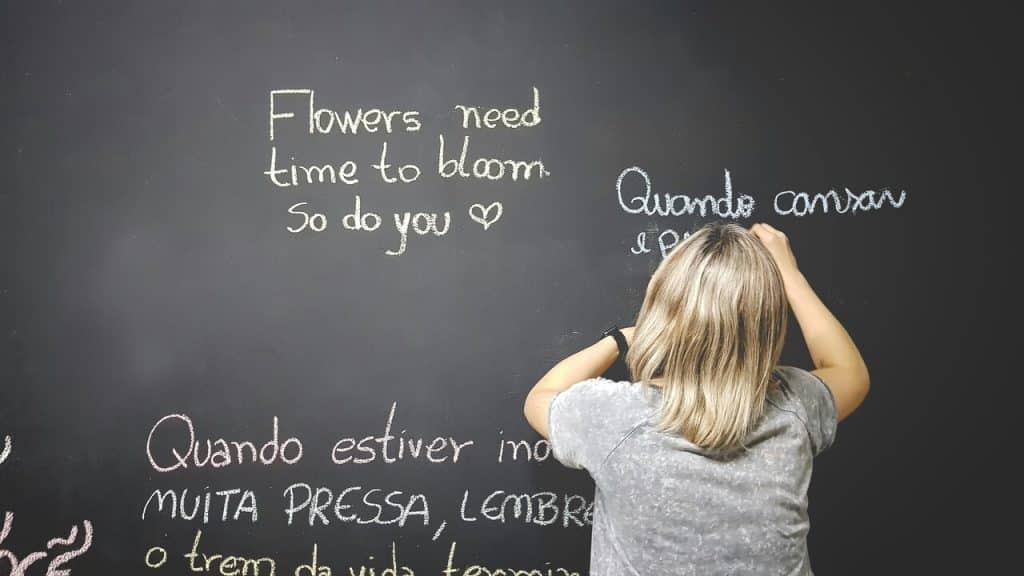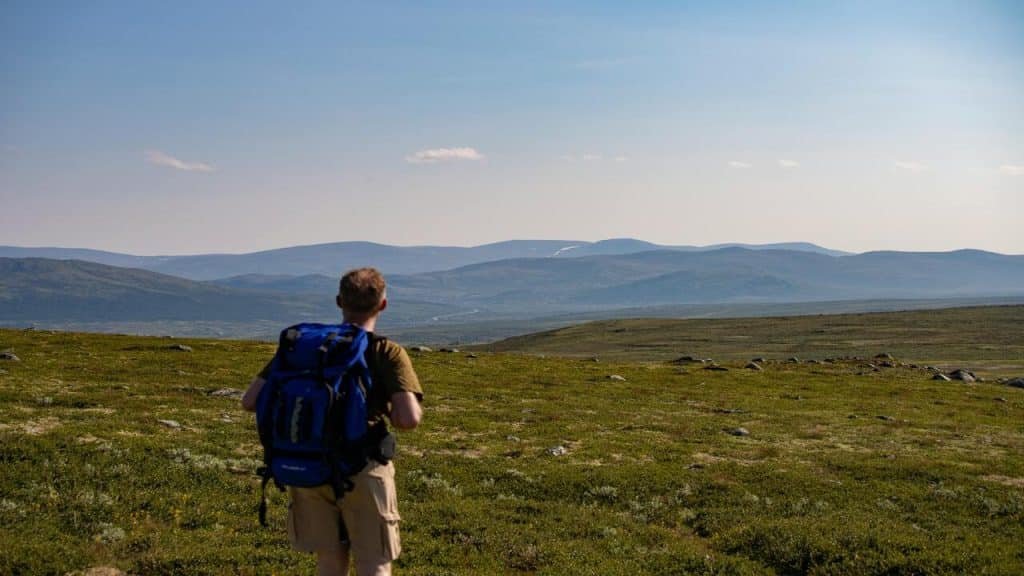
Some bucket list goals are just that–checkmarks on a list. But the ones that change how you see life? They don’t just take you places–they transform you. They shake up your perspective, stretch your emotional range, and rewire the way you show up in the world.
These aren’t just trips and thrills–they’re lived epiphanies. Below are 18 of them. Practical, powerful, and maybe even life-altering–if you let them be.
1. Spend a Month Somewhere You Don’t Know the Language

Getting lost in translation forces you to pay attention differently. You notice gestures, body language, tone–human signals beyond words. It rewires how you connect with people. It teaches patience, curiosity, humility. You realize how much of life is navigable without being in control. And when you return home, you’ll find yourself less reactive and more observant–qualities that make relationships, leadership, and even daily annoyances a lot easier to manage.
2. Take a Solo Trip (No Itinerary, No Rules)

When you travel solo, you meet yourself in a way group trips never allow. Without the crutch of someone else’s agenda, your intuition becomes your compass. You learn what kind of food you actually like, what kind of rhythm your body prefers, and what kind of thoughts emerge in stillness. It can be both liberating and uncomfortable. But the self-trust you build? That’s the kind of inner anchor you’ll lean on forever.
3. Apologize to Someone You Hurt (Even If It Was Years Ago)

Some apologies aren’t about reopening wounds–they’re about releasing yourself from the grip of unresolved guilt. It’s not always about being forgiven. It’s about showing up, owning it, and offering something true and vulnerable. The courage it takes to do this deepens your capacity for empathy. And that skill alone can change the way you navigate every relationship moving forward.
4. Learn a Physical Skill You Thought Was “Too Late” for You

Surfing. Boxing. Skateboarding. Ballet. Pick something that once intrigued you but felt out of reach. And start small. Because the process of becoming a beginner again–awkward, unsure, humbly open–resets your ego. You develop resilience, patience, and an appreciation for craft. It’s not about mastery. It’s about reclaiming your ability to grow and evolve at any age.
5. Volunteer Somewhere That Makes You Deeply Uncomfortable

Comfort zones breed numbness. When you volunteer in an environment that shakes you–like a refugee center, a hospice, or a prison–you stop intellectualizing hardship. You witness it. And in that witnessing, you get humbled, grateful, and activated. You start asking bigger questions about your privilege, purpose, and place in the world. And those questions tend to stick around–and shape you.
6. Sleep Under the Stars with No Phone, No Distractions

Modern life has pulled us so far from nature that reconnecting feels like therapy. When you sleep outdoors, exposed to the sky, something primal reawakens. Your nervous system slows. Your mind quiets. You remember you’re not just a brain in a chair staring at a screen–you’re part of something vast and ancient. That feeling doesn’t just inspire awe. It realigns your priorities in ways that last.
7. Write a Letter to Your Future Self and Hide It

There’s something strangely powerful about writing to someone you haven’t met yet–your future self. You articulate what you hope, fear, and value now. You offer wisdom, questions, and encouragement. Then you seal it. And one day–years later–you find it. The act alone is grounding. It reminds you that growth is both invisible and undeniable. And it gives you a rare kind of perspective: compassion for your own evolution.
8. Reconnect With an Old Friend You Lost Touch With

Some friendships don’t die–they just pause. Life gets busy. People move. But the energy of a real connection can remain dormant until revived. Reaching out takes courage and vulnerability. But if they respond, you might rediscover a version of yourself you’d forgotten. You remember who you were, who they were, and how growth isn’t always about letting go–it’s also about returning.
9. Try a 30-Day No Complaints Challenge

Complaining is a reflex. We do it to connect, deflect, or vent. But what if you paused that pattern for 30 days? No whining, no sarcasm, no negativity-dressed-as-humor. It forces you to rewire your language, your thoughts, and your emotional tone. You start focusing on solutions instead of problems. And more importantly–you realize how often your words shape your inner world.
10. Learn the Stories of Your Elders

There’s wisdom in your lineage–stories of love, war, sacrifice, migration, survival. But most people never ask. Sit down with a grandparent, an uncle, or an older neighbor. Record their voice. Ask about what they regret. What made them proud. What scared them. What healed them. These stories don’t just teach you–they anchor you. They give your own struggles a wider context and a deeper resilience.
11. Practice Saying “No” for a Whole Week

We say “yes” to avoid conflict, keep peace, or not disappoint. But over time, chronic yes-ing dulls your sense of identity. For one week, say no to every invitation, request, or expectation that drains you. Not out of cruelty, but clarity. It will feel uncomfortable–and that’s the point. Because in that discomfort, you reclaim something essential: the right to live in alignment with your own needs.
12. Attend a Religious or Cultural Ceremony Outside Your Belief System

You don’t have to convert. You don’t even have to agree. But witnessing how other people worship, mourn, celebrate, and pray can be a powerful reminder of the shared emotional language of being human. The chants may differ. The symbols may confuse. But the longing, awe, grief, and gratitude? Universal. And once you see that, you start recognizing yourself in people who once felt “other.”
13. Make a List of 100 Things You’re Grateful For

Gratitude is a practice that deepens with effort. Go beyond the surface: dig into small memories, unnoticed privileges, sensory joys, personal breakthroughs. Listing 100 will feel tedious at first–but then it’ll become surprising, revealing, maybe even healing. You’ll see patterns. You’ll remember forgotten moments. And you’ll realize your life has been fuller than you gave it credit for.
14. Visit a Country in Conflict and Talk to the Locals

This isn’t about danger tourism. It’s about listening. With care, context, and respect. When you travel to places often reduced to headlines and soundbites–and talk to the people living it–you begin to see how one-dimensional your worldview might be. You see how courage, humor, and humanity persist in hardship. And it changes how you digest news, how you empathize, and how you use your voice.
15. Spend a Day With No Mirror, No Selfie, No Reflection

It’s hard to admit, but many of us obsessively monitor how we appear–not just how we are. Take a full day without looking at your reflection, camera, or screen. No checking your angles. No fixing your hair. Just being. It’s disorienting at first. Then liberating. You begin noticing what you feel instead of how you look. And that’s a shift worth keeping.
16. Create a “Fear List” and Do One Every Month

We tend to tiptoe around our fears–until they become invisible walls shaping our entire lives. Write them down: fear of rejection, public speaking, failure, heights, whatever it is. Then once a month, choose one to gently confront. Not recklessly–but deliberately. The more you do this, the less your world shrinks. And the more agency you build. Fear stops being a stop sign and starts being a teacher.
17. Host a Gathering That Brings Together People From Different Worlds

What happens when you mix your gym friends with your coworkers, your artist cousin, and your introvert neighbor? Something unpredictable. And beautiful. When we silo our social circles, we limit the kinds of conversations–and insights–we’re exposed to. Hosting a dinner or gathering that brings them together doesn’t just create memories. It broadens your understanding of connection itself.
18. Spend One Full Day Doing Nothing–On Purpose

Not a lazy day filled with scrolling. Not a “rest day” that turns into chores. A true nothing day. No productivity. No achievement. Just presence. Sit on a bench. Watch clouds. Nap. Read slowly. Wander without aim. In a culture obsessed with doing, this is a rebellion. And in that rebellion, you’ll remember that your worth has never been tied to your output–it’s tied to your being.






Ask Me Anything